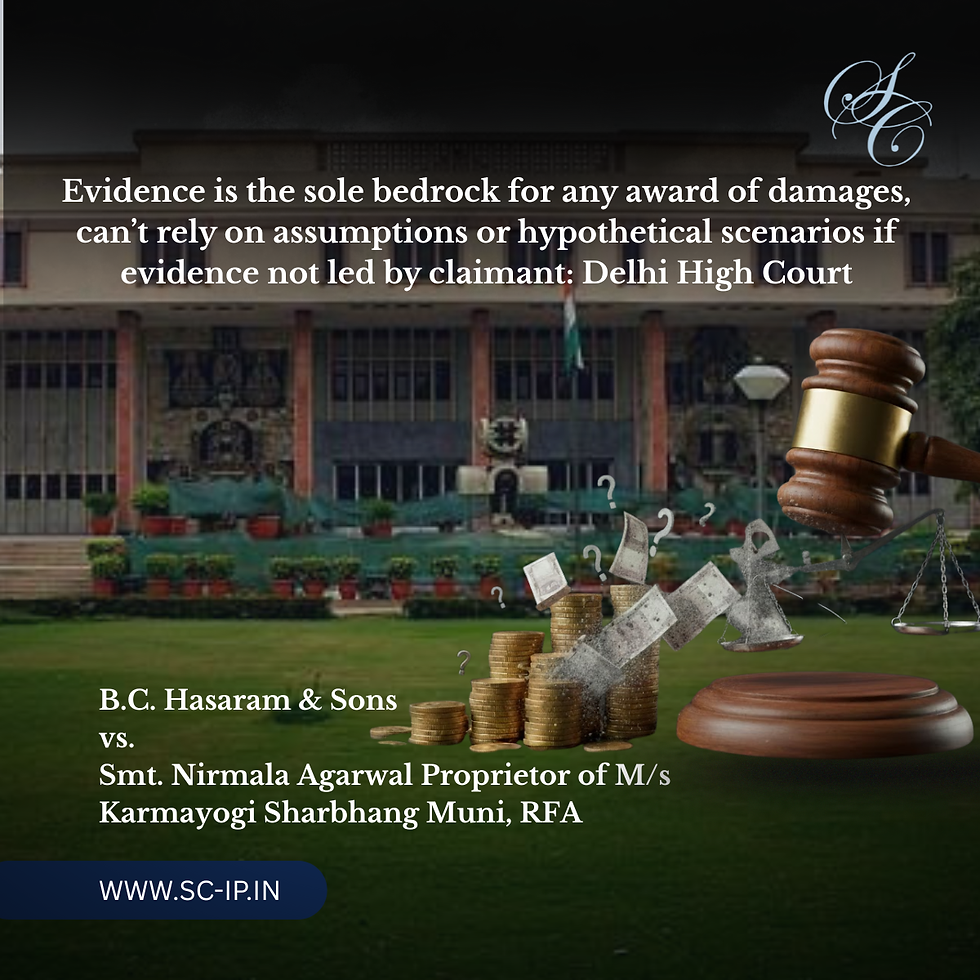Google LLC vs. Controller of Patents
- SC IP
- Sep 2, 2025
- 2 min read

Mere automation through Standard Data Processing cannot be allowed patent protection in India: Calcutta High Court Upholds Patent Refusal u/s 3(k) for Software-Implemented Inventions
In Google LLC v. Controller of Patents (IPDPTA/90/2023), the Calcutta High Court clarified the boundaries of patent eligibility for computer-related inventions, particularly those characterized as software-driven methods.
Google LLC appealed the rejection of its Indian patent application (No. 2705/KOLNP/2014), which described a method for labelling visited locations based on contact information. The invention aimed to improve location-aware services by associating location history with contextual labels (like “home,” “work”) derived from a user’s contacts, thereby providing enhanced functionality for computing devices.
The court found that the rejection was based on Section 3(k) of the Patents Act, which excludes "a mathematical or business method or a computer programme per se or algorithms" from patentability, unless the invention demonstrates technical advancement or involves novel hardware.
The Assistant Controller reasoned that all steps (collecting, determining, associating, outputting) were executed as software routines on generic hardware, and the claims lacked any concrete technical effect or improvement to computing technology itself.
The Court held that the claims described, in essence, the automation of administrative and labelling functions through standard data processing without sufficient technical contribution beyond a normal computer program.
Google’s reliance on precedents such as Ferid Allani, Blackberry Limited, Microsoft Technology Licensing decisions were distinguished. In the said earlier cases, the inventions showed clear technical effects or advances beyond standard software operations, which was found lacking in Google’s application.
The Result
The High Court dismissed the appeal, endorsing the Patent Office’s reasoning and confirming that the application's subject matter fell within the exclusions of Section 3(k). The mere automation or contextual enhancement of location history was deemed insufficient for patenting, absent a demonstrable technical advancement or inventive hardware.
Why This Matters
This decision reinforces that, under Indian law, computer-implemented inventions must do more than repackage abstract administrative or algorithmic ideas in method claims. Applicants must substantiate technical effect or hardware novelty to avoid the Section 3(k) bar. Making location history automatic or more contextual isn’t enough to get a patent unless there’s a clear technical improvement or new hardware involved.
Google LLC v. Controller of Patents (IPDPTA/90/2023)




Comments